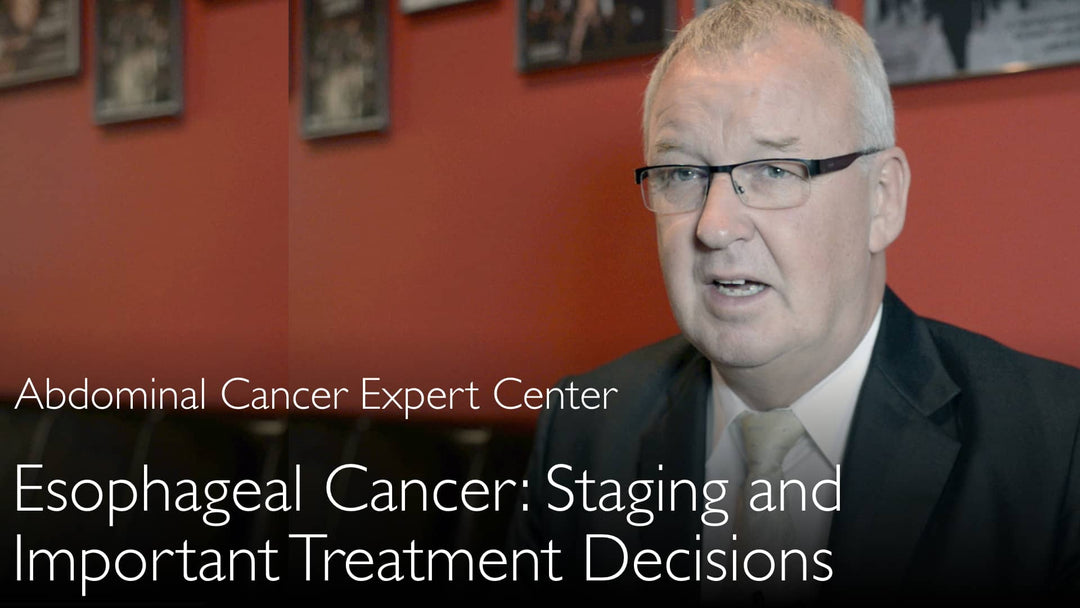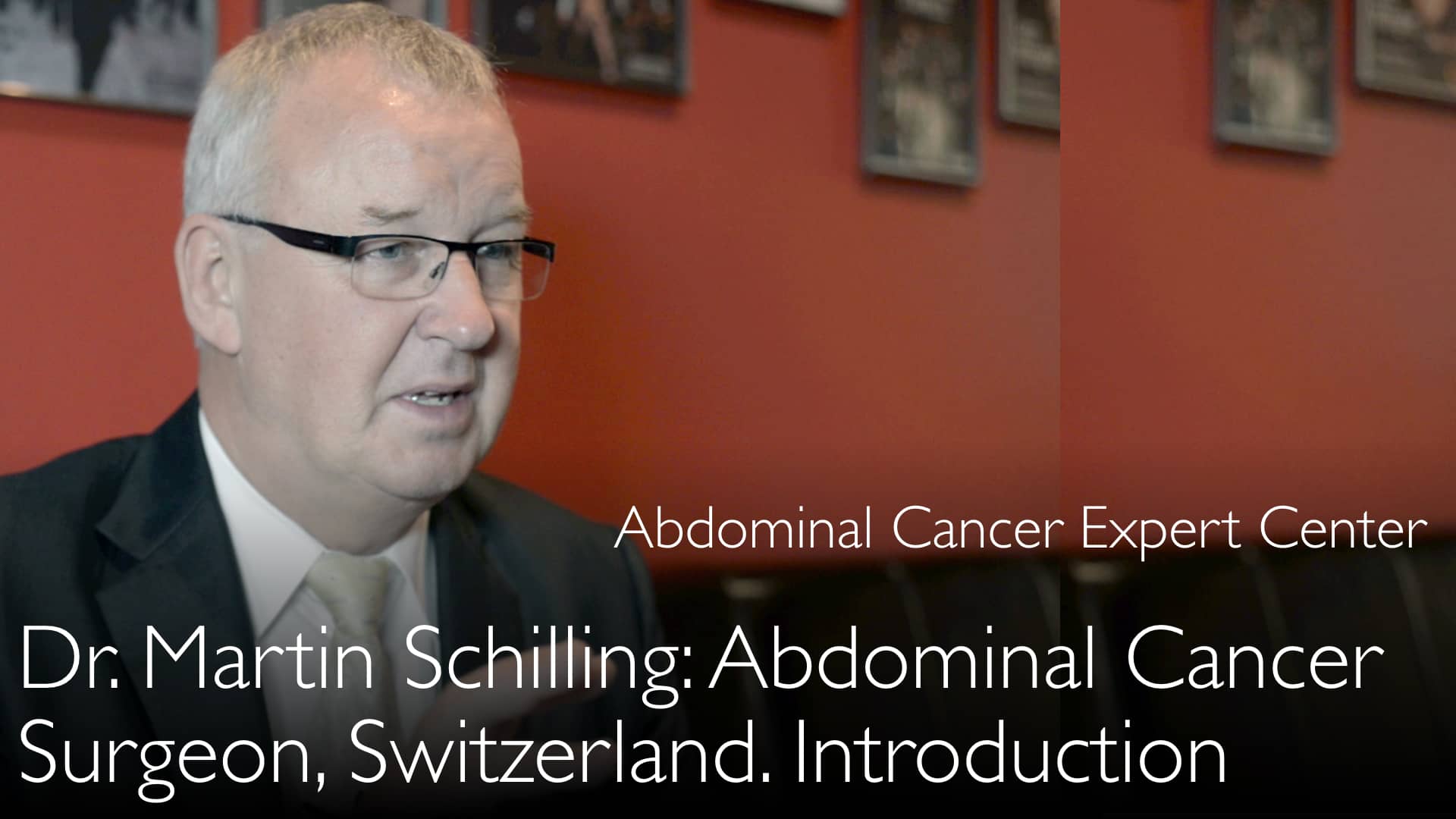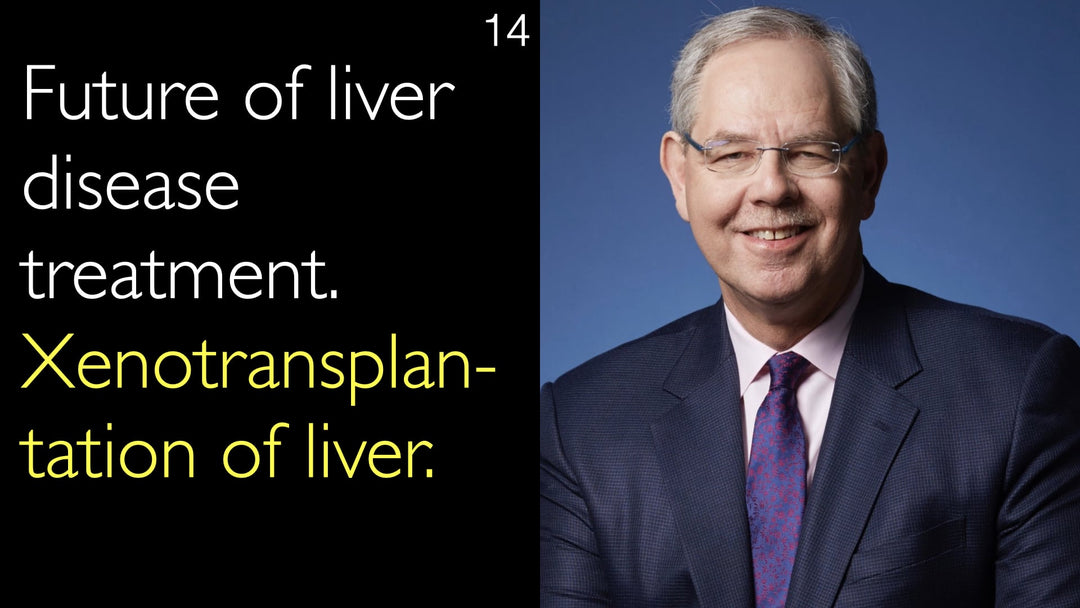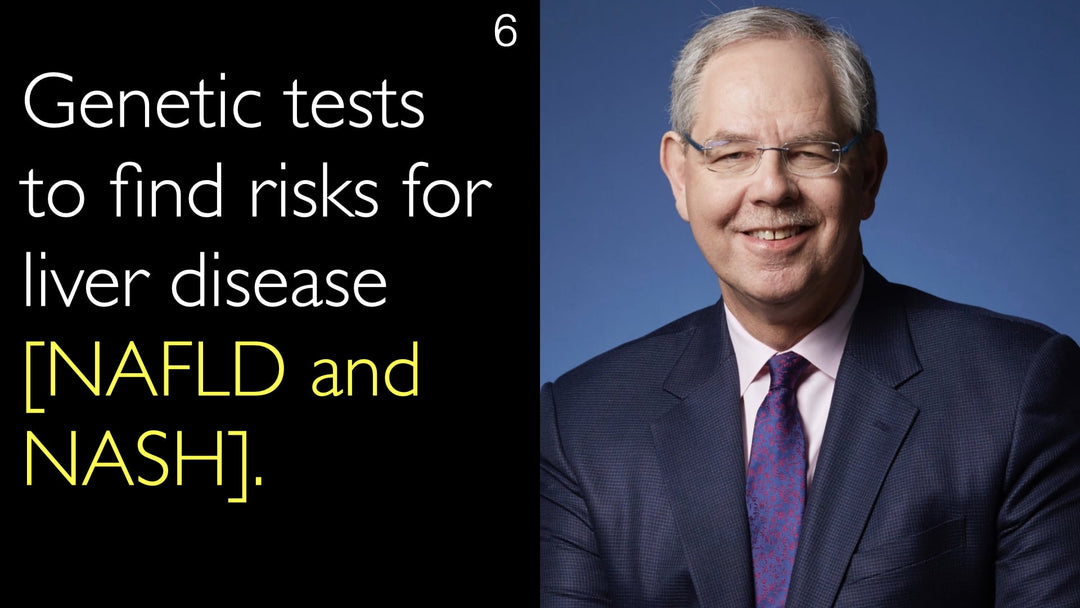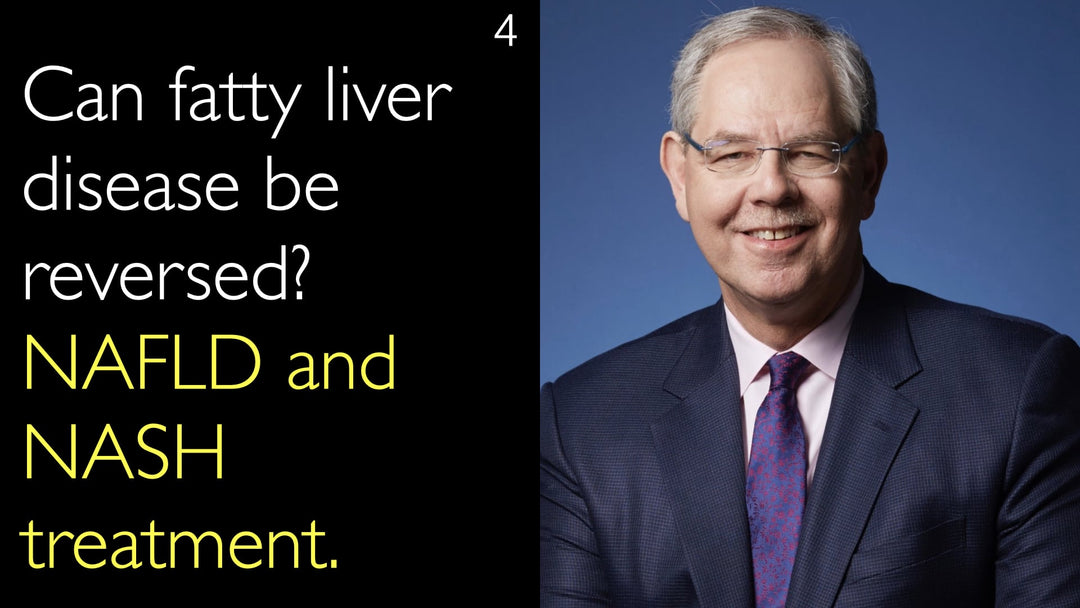Le Dr Martin Schilling, MD, expert de renom en chirurgie des cancers gastro-intestinaux, explique comment un staging précis du cancer de l'œsophage oriente le choix du traitement optimal. Il détaille l'utilisation combinée du scanner, de l'endoscopie, de l'échographie et de la TEP pour évaluer la taille de la tumeur et l'envahissement ganglionnaire. Le Dr Schilling présente également une technique chirurgicale spécialisée qu'il a développée, réduisant considérablement le taux de fuite anastomotique — généralement autour de 30 % — à moins de 10 %. Cette avancée améliore significativement le pronostic des patients après une œsophagectomie radicale.
Stadification avancée du cancer de l'œsophage et options de traitement chirurgical
Aller à la section
- Importance d'une stadification précise
- Méthodes diagnostiques pour la stadification
- Approche thérapeutique multimodale
- Techniques chirurgicales de résection
- Méthode innovante de reconstruction
- Amélioration des résultats chirurgicaux
- Transcription intégrale
Importance d'une stadification précise
Une stadification précise du cancer de l'œsophage est essentielle pour planifier le traitement chirurgical et assurer une résection tumorale radicale. Le Dr Martin Schilling, MD, souligne que la connaissance de la taille tumorale locale et de l'envahissement ganglionnaire influence directement les décisions thérapeutiques. Cette précision permet de déterminer l'éligibilité du patient à la chirurgie et de choisir l'intervention la plus adaptée.
Méthodes diagnostiques pour la stadification
La stadification du carcinome œsophagien repose sur plusieurs techniques d'imagerie avancée. Le Dr Martin Schilling, MD, explique que le scanner, l'endoscopie, l'échographie et la TEP sont des outils indispensables. Ces examens permettent d'évaluer l'étendue de la dissémination tumorale et de détecter les métastases ganglionnaires, offrant ainsi une vision complète de la maladie avant toute intervention.
Approche thérapeutique multimodale
Le traitement du cancer de l'œsophage localement avancé associe généralement plusieurs thérapies. Le Dr Martin Schilling, MD, indique que les patients reçoivent souvent une chimiothérapie et une radiothérapie en prétraitement, suivies d'une intervention chirurgicale pour retirer la tumeur. L'étendue de la chirurgie est adaptée à l'état du patient et au stade de la maladie.
Techniques chirurgicales de résection
La chirurgie du cancer de l'œsophage peut être abordée par différentes voies anatomiques. Le Dr Anton Titov, MD, décrit comment les chirurgiens opèrent par l'abdomen et le diaphragme ou par le thorax. Le Dr Martin Schilling, MD, insiste sur le fait que, quelle que soit l'approche, l'intervention doit être radicale. L'objectif reste toujours la résection complète de la tumeur pour optimiser les résultats.
Méthode innovante de reconstruction
Une avancée majeure en chirurgie œsophagienne concerne les techniques de reconstruction. Le Dr Martin Schilling, MD, a développé une méthode spécialisée pour prévenir la fuite anastomotique, une complication fréquente. Cette technique préserve une vascularisation optimale de l'estomac sans compromettre le caractère radical de la chirurgie, améliorant ainsi significativement le succès de la reconstruction après résection.
Amélioration des résultats chirurgicaux
Les résultats de cette technique innovante de reconstruction sont substantiels. Le Dr Martin Schilling, MD, rapporte que tandis que les taux de fuite anastomotique œsophago-gastrique atteignent habituellement 30 %, sa méthode permet de les réduire à moins de 10 %. Cela représente une amélioration triple des résultats. Le Dr Anton Titov, MD, souligne l'impact significatif sur la récupération des patients et le succès global du traitement.
Transcription intégrale
Un chirurgien oncologue digestif de premier plan explique les méthodes de stadification du cancer de l'œsophage, cruciales pour la planification du traitement chirurgical. Une évaluation précise de la tumeur est essentielle pour un traitement radical du carcinome œsophagien.
L'échographie et le scanner sont utilisés pour identifier la dissémination tumorale et détecter l'envahissement ganglionnaire.
Les taux de fuite anastomotique œsophago-gastrique atteignent généralement 30 %. Grâce à notre méthode de reconstruction, nous obtenons des taux inférieurs à 10 %.
Dr. Anton Titov, MD: Parlons du cancer de l'œsophage. Avec plus de 30 ans d'expérience, vous traitez cette pathologie par la chirurgie.
Dr. Martin Schilling, MD: Le cancer de l'œsophage est souvent diagnostiqué à un stade localement avancé, ce qui peut rendre son traitement chirurgical complexe.
Dr. Anton Titov, MD: Pourriez-vous détailler votre stratégie thérapeutique, en particulier les aspects chirurgicaux ?
Dr. Martin Schilling, MD: Le traitement commence par une stadification précise : évaluation de la taille tumorale, de l'extension ganglionnaire et des métastases éventuelles. Nous utilisons le scanner, l'endoscopie, l'échographie et la TEP. Le traitement dépend du stade et de l'envahissement ganglionnaire. Les patients reçoivent généralement une chimiothérapie et une radiothérapie avant la chirurgie, qui doit toujours viser une résection radicale.
Dr. Anton Titov, MD: Vous opérez par l'abdomen ou le thorax. Vous avez aussi développé une technique de reconstruction publiée abondamment. Pouvez-vous en parler ?
Dr. Martin Schilling, MD: Une complication majeure est la désunion anastomotique, souvent due à une vascularisation insuffisante. Notre technique préserve la vascularisation gastrique sans compromettre le radicalisme chirurgical.
Dr. Anton Titov, MD: Quels résultats avez-vous obtenus avec cette méthode ?
Dr. Martin Schilling, MD: Les séries publiées rapportent des taux de fuite jusqu'à 30 %. Notre méthode permet de descendre sous les 10 %.
Dr. Anton Titov, MD: C'est très significatif : vos résultats sont trois fois meilleurs.
Dr. Martin Schilling, MD: Exactement.


